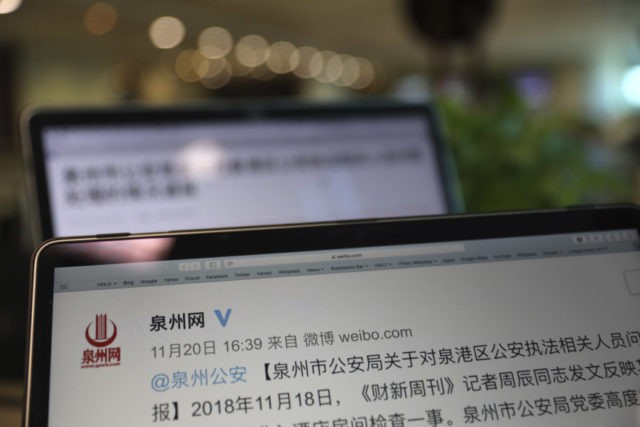The Chinese government on Monday unveiled its “Greater Bay Area” project to unite the semi-autonomous cities of Hong Kong and Macau with nine mainland cities into a tech and financial hub on par with Silicon Valley, its collective economy worth over $1.5 trillion.
More precisely, Monday’s news was a tease: an announcement that an announcement is imminent, with a detailed blueprint to be revealed over the weeks to come. Officials in Beijing approved a rough outline of the project last month and Beijing has contemplated the general idea for three years.
The Greater Bay Area is scheduled for completion over the course of the next 15 years, beginning with an effort to make business travel easier between Hong Kong, Macau, and the mainland cities. The massive bridge between Hong Kong and Macau, and the controversial new rail line from Hong Guang to Guangzhou, that were completed last summer were high-profile first steps toward creating the desired travel infrastructure.
The general idea is to establish an administrative hub in the mainland Guangdong region that will firmly rope Hong Kong and Macau into Chinese politics, administration, and economics.
“The blueprint might not include a lot of immediate measures or policies, but it will outline the directions, and then the governments of Hong Kong, Macau and Guangdong will work together with the central authorities to implement policies,” Hong Kong Secretary for Constitutional and Mainland Affairs Patrick Nip Tak-kuen explained on Sunday.
Hong Kong chief executive Carrie Lam enthusiastically supported the Greater Bay Area initiative when the buzz intensified last week.
“We are all very committed to building a bay area economy which is open, international, which will consist of an international innovation and technology hub, which has the personal support of President Xi Jinping,” she said.
Lam encouraged generous cooperation between the 11 cities. “Anything that is just fierce competition should be avoided as far as possible,” she advised.
Although Lam insisted the new arrangement would not compromise Hong Kong’s “one country, two systems” autonomy, opposition leaders see the Greater Bay Area as a gambit to further erode the island’s already fragile independence, especially if Beijing shares Lam’s distaste for “fierce competition.” Hong Kong has clear advantages over the other cities in a number of areas, so if competition is to be minimized, Hong Kong’s energy will have to be artificially restrained. The new railroad from Hong Kong to the mainland sparked a bitter argument over sovereignty because part of the terminal is legally treated as Chinese territory, ostensibly for the convenience of passengers.
After the Hong Kong-Macau bridge was completed, Foreign Policy found regular Hong Kongers much cooler toward the Greater Bay Area project than their pro-China leadership, while democracy activists see the initiative as a scheme to erase “one country, two systems.” Some advocates of the project in Hong Kong have explicitly encouraged island citizens to think of themselves as “Bay Area people” instead of “Hong Kong people,” and even advised them to think about emigrating from Hong Kong to mainland cities in search of job opportunities and cheaper housing.
Critics fear the bit of Chinese authority planted at the new West Kowloon railroad station will begin spreading like a virus to encompass the entire island. They also grumble that the high-profile infrastructure components of the Greater Bay Area, including the gigantic new bridge and the high-speed rail line, are white elephants that bring much greater economic benefits to mainland cities than to Hong Kong.
Local environmentalists can dimly be heard in the background warning about the impact of hyper-industrialization on the Pearl River Delta ecosystem. Global environmentalists are, of course, curiously silent about a plan that would enormously increase the energy consumption, carbon footprint, and pollution output of the region, because global environmentalists do not criticize China the way they constantly attack the United States.
Opponents will probably keep their powder dry until the promised blueprint is finally revealed and they have something specific to criticize. For the moment, Hong Kong’s business community is hoping for greater access to the mainland market and anticipating a privileged position as the gateway from China to the rest of the business world. Under the present arrangement, Hong Kong businesses tend to face high taxes and restrictive regulations if they open permanent offices on the mainland, while investors find it difficult to move capital there.

COMMENTS
Please let us know if you're having issues with commenting.